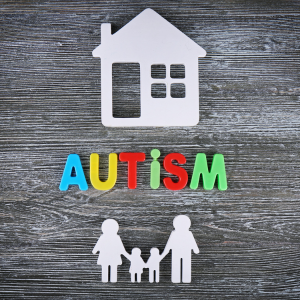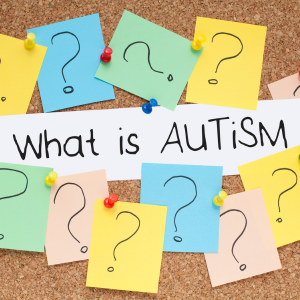
Autism Assessment Service: Expert Diagnosis by Professional Psychologists
Autism, also known as Autism Spectrum Disorder (ASD), affects how a person communicates, interacts, and experiences the world around them. Early diagnosis and support are key to helping individuals with autism thrive. If you or a loved one is seeking clarity or a formal diagnosis, a professional autism assessment by a licensed psychologist can provide the answers and guidance you need.
This comprehensive guide will explain what an autism assessment involves, the diagnostic criteria for autism in the UK, and how a professional psychologist can help with a thorough, compassionate evaluation.
What is an Autism Assessment?
An autism assessment is a detailed evaluation conducted by a trained psychologist or a multidisciplinary team. The goal is to determine whether an individual meets the diagnostic criteria for Autism Spectrum Disorder. This process involves gathering detailed information about a person’s developmental history, behaviour, and social interactions.
Key Components of an Autism Assessment:
- Developmental History: The psychologist will review the individual’s early development, including milestones like speech, motor skills, and social interactions.
- Observations and Interviews: The assessment includes interviews with the individual (if possible), as well as family members or caregivers to understand behaviors, challenges, and strengths.
- Standardized Diagnostic Tools: Professionals use standardized tools such as the Autism Diagnostic Observation Schedule (ADOS) and Autism Diagnostic Interview-Revised (ADI-R) to assess key traits and behaviours.
- Cognitive and Behavioral Assessments: Cognitive assessments are often used to evaluate thinking skills, while behavioural observations help assess social interaction, communication, and repetitive behaviours.
Who Should Seek an Autism Assessment?
If you or someone you care for has difficulties with social communication, rigid behaviours, or sensory sensitivities, seeking an autism assessment can provide clarity and access to appropriate support. These assessments are beneficial for children, adolescents, and adults who may have been overlooked or misdiagnosed earlier in life.


The Criteria for Autism Diagnosis in the UK
In the UK, diagnosing Autism Spectrum Disorder follows the guidelines outlined in the ICD-11 (International Classification of Diseases) and the DSM-5 (Diagnostic and Statistical Manual of Mental Disorders). These criteria are used by health professionals, including psychologists, to confirm whether an individual meets the threshold for an autism diagnosis.
Key Diagnostic Criteria for Autism in the UK:
- Persistent Deficits in Social Communication and Interaction:
- Difficulty with non-verbal communication, such as gestures, facial expressions, or eye contact.
- Challenges in forming and maintaining relationships, including difficulties understanding social cues or making friends.
- Limited ability to initiate or sustain conversations.
- Restricted, Repetitive Patterns of Behaviour:
- Repetitive motor movements or speech patterns, such as hand-flapping, echolalia (repeating phrases), or lining up objects.
- Strict adherence to routines or rituals, and becoming distressed by changes.
- Intense focus on specific interests or hobbies, often with deep knowledge on the subject.
- Sensory sensitivities to sounds, textures, lights, or specific tastes.
- Symptoms Present in Early Development:
- While symptoms may become more noticeable as the individual ages, signs must have been present from early childhood.
- Symptoms Must Cause Significant Impairment:
- The challenges related to social interaction, communication, or rigid behavior patterns must interfere with the person’s ability to function in everyday life, such as at school, work, or home.
- Symptoms Cannot Be Better Explained by Another Condition:
- A thorough assessment ensures that the traits are not due to another mental health condition, developmental disorder, or neurological issue.
What is Involved in an Autism Assessment?
An autism assessment usually unfolds in several stages, ensuring a thorough and comprehensive evaluation:
1. Initial Consultation:
The process begins with an initial consultation to discuss concerns, provide an overview of the assessment process, and gather preliminary information. This is an opportunity for the psychologist to understand the reasons for seeking an assessment and to explain what will be involved.
2. Developmental History and Background Information:
The psychologist will conduct a detailed developmental history, often involving interviews with the individual and their family members or caregivers. This stage helps gather insights into the person’s early development, including language acquisition, social behaviour, and key milestones.
3. Diagnostic Assessments and Testing:
Standardised diagnostic tools such as the Autism Diagnostic Observation Schedule (ADOS) and Autism Diagnostic Interview-Revised (ADI-R) will be used to assess communication skills, social interactions, and repetitive behaviours. Cognitive testing may also be conducted to evaluate problem-solving abilities and intellectual functioning.
4. Observations in Multiple Settings:
Observations may be conducted in various settings, such as at home, school, or the clinic, to assess how the individual interacts with others in different environments.
5. Feedback and Diagnosis:
After the assessments are complete, the psychologist will provide detailed feedback on the findings. If the individual meets the criteria for autism, a formal diagnosis will be made, and a comprehensive report will be provided.
6. Recommendations and Support:
Following the diagnosis, the psychologist will offer recommendations for support services, interventions, or therapies that can assist with managing challenges related to autism. This might include educational support, occupational therapy, or social skills training.

Frequently Asked Questions About Autism Assessments
What are the signs that someone should seek an autism assessment?
Signs may include difficulties with social interactions, communication challenges, repetitive behaviours, sensory sensitivities, and strict adherence to routines. If these issues are impacting daily functioning, an autism assessment is recommended.
How long does an autism assessment take?
The assessment process varies depending on the individual but typically takes several weeks from the initial consultation to the feedback session. The evaluation itself may involve multiple appointments.
What age can you be diagnosed with autism?
Autism can be diagnosed at any age, from early childhood to adulthood. While early diagnosis is ideal, many adults seek diagnosis later in life, especially if their symptoms were missed or misdiagnosed earlier.
Is the autism assessment process different for adults?
The core elements of the assessment are the same for children and adults, but in adult assessments, more focus is placed on current functioning and life experiences. Adults may provide their own developmental history with the help of family members or old school records.
Do I need a referral for an autism assessment in the UK?
In the UK, you can get a referral for an autism assessment from your GP, or you may choose to contact a private psychologist directly for an evaluation.
.
Is there a cure for autism?
Autism is not an illness and therefore cannot be “cured.” It is a lifelong condition. However, with the right support and interventions, individuals with autism can lead fulfilling, successful lives.
What happens if I don’t meet the criteria for an autism diagnosis?
If you don’t meet the diagnostic criteria, the psychologist will discuss alternative explanations for your symptoms and may recommend further assessments or support for any other identified challenges.
Can an autism diagnosis help with accessing support services?
Yes, a formal autism diagnosis can help individuals access specific support services, including educational accommodations, social skills programs, and specialised therapies.
Will the autism diagnosis affect my work or school life?
The diagnosis itself won’t directly impact your employment or education, but it can help secure appropriate accommodations or support. Schools and employers are required to make reasonable adjustments for individuals with autism
Can autism assessments be done online?
The diagnosis itself won’t directly impact your employment or education, but it can help secure appropriate accommodations or support. Schools and employers are required to make reasonable adjustments for individuals with autism
The Importance of Professional Autism Assessment
Receiving an autism diagnosis can be a crucial step in understanding yourself or your loved one’s unique needs and finding the right support. A professional autism assessment conducted by a licensed psychologist ensures a thorough and accurate evaluation, grounded in the latest diagnostic criteria and supported by evidence-based tools.
Whether you’re seeking a diagnosis for a child, teenager, or adult, the assessment process is designed to provide clarity, understanding, and access to essential services that can improve quality of life. If you believe you or someone close to you may be on the autism spectrum, consider reaching out to a qualified psychologist for a professional assessment today.
